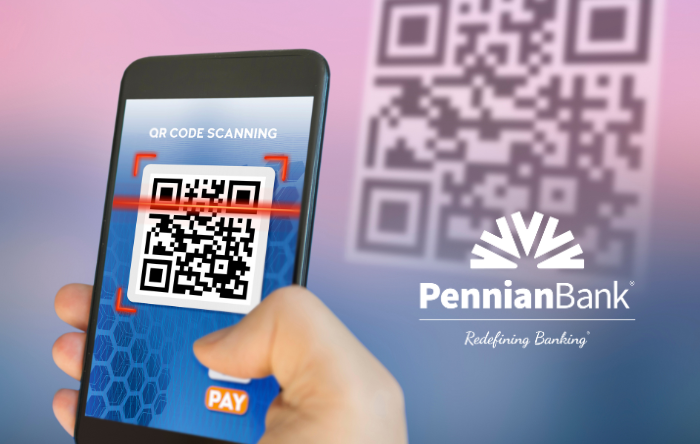Protect Yourself from Quishing

A New Twist on Phishing
At Pennian Bank, your security is our top priority. As cybercriminals evolve their tactics, it’s crucial for all of us to stay informed. One of the latest threats targeting consumers is Quishing—a form of phishing that uses QR codes to trick people into revealing sensitive information.
What is Quishing?
Quishing (QR code phishing) is a scam where fraudsters use QR codes to direct victims to malicious websites. These codes may appear in emails, text messages, printed flyers, or even fake advertisements. Once scanned, the QR code may lead to a site that looks legitimate but is designed to steal your personal or financial information.
Why is Quishing dangerous?
QR codes are convenient and widely used, but they don’t show you where they’re taking you until you scan them. That’s what makes Quishing so dangerous.
- Invisible URLs: You can’t see the destination until it’s too late.
- Impersonation: Scammers often mimic trusted brands, including banks.
- Malware Risk: Some QR codes can trigger downloads of malicious software.
- Data Theft: You may be prompted to enter login credentials, credit card numbers, or other sensitive data.
How to Protect Yourself
- Be Skeptical of Unsolicited QR Codes: If you receive a QR code via email or text from an unknown sender, don’t scan it.
- Verify the Source: If a QR code claims to be from your bank, utility company, or another trusted entity, verify it through official channels before scanning.
- Use a QR Scanner with Preview: Some apps allow you to preview the URL before opening it. Use these to check where the code is taking you.
- Look for Signs of Tampering: In public places, scammers may place fake QR code stickers over legitimate ones. If something looks off, don’t scan it.
- Keep Your Device Secure: Make sure your phone has updated antivirus software and operating system patches.
What To Do If You Think You’ve Been Scammed:
- Disconnect from Wi-Fi or Mobile Data Immediately.
- Run a Security Scan on your device using trusted antivirus software.
- Change Your Passwords, especially for banking and email accounts.
- Monitor Your Bank Accounts for suspicious activity.
- Contact Us Right Away – Call or visit your local branch so we can help secure your accounts and guide you through next steps.

